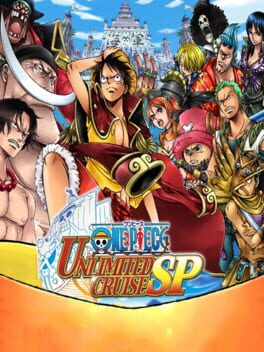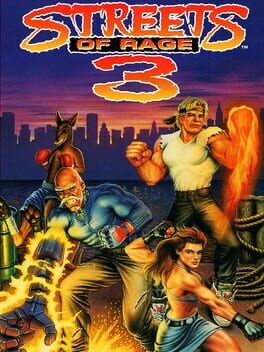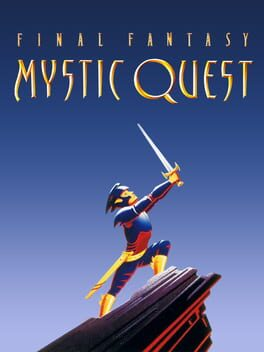Filter:
.GEARS Studios (Archive) BANDAI NAMCO Studios Inc. 0verflow 1-UP Studio 11 bit studios 14 Degrees East 1Button 1C-SoftClub 1C/Cenega 1st Playable Productions 20th Century Fox Games 221B Software Development 24 Bit Games 2D Boy 2K 2K Australia 2K Boston 2K China 2K Czech 2K Games 2K Play 2K Sports 343 Industries 38 Studios 3909 3D Clouds 3D Groove 3D Realms 4A Games 4AM Entertainment 4J Studios 4Kids Entertainment 4Kids TV 4th Kernel Studios 505 Game Street 505 Games 5th Cell 7th Level 8-4 87eleven 8ing 90% Studios 989 Studios A.I Company Aackosoft Aardman Digital Aardvark Software ABAB Soft Absolute Entertainment Abstraction Games Access Games Acclaim Acclaim Black Team Acclaim Cheltenham Acclaim Entertainment Acclaim Japan Acclaim Studios Austin Acclaim Studios Cheltenham Acclaim Studios Manchester Acclaim Studios Salt Lake City Acclaim Studios Teesside Accolade Acer TWP Ackk Studios ACQUIRE Corp. Acram Digital Active Enterprises Activision Activision Asia-Pacific Activision Blizzard Activision Deutchland Activision Italia Activision Publishing Activision Shanghai Activision UK Activision Value Actual Entertainment Adeline Software International ADK Admiral Software Adrenalin Entertainment Adrenium Games Adult Swim Games Advance Communication Company Advanced Microcomputer Systems ADX Aether Studios Agatsuma Agatsuma Entertainment AGC Hamburg Agetec Ahr Ech AIA Games AIA USA AiCherry Aicom AIM Productions AirPlay Airtight Games Aisystem Tokyo Akella AKI Corporation Aksys Games Alchemist Aldorlea Games Alegrium Alexey Pajitnov Alfa System AlfaSystem Co., Ltd. Alien Technology Group All Interactive Distributuion Allumer, Ltd. Almathera Systems Alpha Denshi Alpha Unit Corporation AlphaDream Alternative Software Ltd. Altron Alvios Amanita Design Amaze Entertainment Amblin Entertainment Ambrella Amccus American Game Cartridges American Technos American Video Entertainment Amersoft AMI Amiga Amtex Amusement Vision AN Productions Ancient Ancient Co., Ltd. Andrew Threlfall Angel Angel Studios Animation Magic Annapurna Interactive Antidote Entertainment Antimatter Games Ape Ape Inc apex computer productions APh Technological Consulting Apogee Software Apollo, Inc. Appaloosa Interactive AQ Interactive Aqua Pacific Arc Developments Arc System Works Arc System Works America Arc System Works Asia Branch Arcade Engineering Arcadia Systems Arcadim Arch Rivals Arena Entertainment Argonaut Games Arika Arika Co., Ltd. Arkadium Arkane Studios Arkedo Studio Armature Studio Armor Games Armor Project Arrowhead Game Studios Arsi "Hakita" Patala ART Art Data Interactive Art Games Studio Artdink Artech Studios Artefacts Studio ArtePiazza Artificial Mind & Movement Artificial Mind and Movement Artix Entertainment Artoon ArtPlay Arush Entertainment Aruze Arzest ASC Games ASCII Corporation ASCII Entertainment Ashby Computers and Graphics Ltd. AsiaSoft ASK Homework Asmik Ace Entertainment Asobo Studio Aspect Aspect Co. Ltd Aspyr Media Assemble Entertainment AstralShift Asylum Entertainment Asylum Entertainment Ltd., Atari Atari Corporation Atari Europe Atari Games Atari Interactive Atari SA Atari, Inc. AtariAge Atarisoft Atelier Double AtGames Athena Athlon Games ATI Technologies Atlus Atlus USA Atomic Planet Entertainment Atreid Concept Attention To Detail Audio Visual Magic Audiogenic Software Ltd. Autumn Games Autumn Moon Entertainment AV Japan Avalanche Software Avalanche Studios AWE Games B-Factory B.B. Studio Backbone Entertainment Bad Habit Productions Ballistic Bally Midway BAM! Entertainment Bamtang Games Banana Development Bandai Bandai America Bandai Namco Entertainment Bandai Namco Entertainment America Bandai Namco Entertainment America Inc. Bandai Namco Entertainment Asia Bandai Namco Entertainment Europe Bandai Namco Entertainment Inc. Bandai Namco Games Bandai Namco Holdings Bandai Namco Studios Bango House Banpresto BAP Interactive Barking Lizards Technologies Barnhouse Effect Bashou House Batterystaple Games BattleCry Studios BBC Multimedia BBC Wales Interactive BBC Worldwide Digital Entertainment Beam Software Bear Naked Productions Beatshapers BEC Bee Tribe Beeline Interactive Beenox Behaviour Interactive Behaviour Santiago Behold Studios Beijing Perfect World Bemani BEMANI Sound Team Bennett Foddy Bethesda Game Studios Bethesda Softworks Big Ant Studios Big Ape Productions Big Bang Big Blue Box Big Blue Bubble Big Blue Dot Big Fish Games Big Huge Games Big Red Button Bignet BigPark BigSky Interactive Inc. BioWare BioWare Austin BioWare Edmonton BioWare Montréal BioWare Mythic Biox Bird Studio Birthday Bit Managers bitComposer Games BitGroove Bitmasters Bits Laboratory Bits Studios Bitwave Games Bizarre Creations Black Box Games Black Forest Games Black Isle Studios Black Label Games Black Lantern Studios Black Ops Entertainment Black Pearl Software Black Tabby Games Black Tower Studios Blade Games World Blast! Entertainment Blastmode Blit Software BlitWise Productions BlitWorks Blitz Games Blitz Games Studios Blizzard Entertainment Blizzard North Blockdot Bloober Team Bloodirony Blue Byte Software Blue Castle Games Blue Fang Games Blue Isle Studios Blue Shift Inc Blue Tongue Entertainment Bluehole Studio Bluepoint Games BlueSky Software BMB BMG Interactive BMG Interactive Entertainment Boffo Games Bohemia Interactive Bohemia Interactive Studio Bonsai Entertainment Corporation Boomzap Entertainment Borealys Games Boss Game Studios Bossa Studios Boston Animation Bothtec, Inc. BottleRocket Entertainment Brainstorm Entertainment Brash Entertainment BrezzaSoft Brighter Minds BrightLight Broccoli Brøderbund Software Brownie Brown Budcat Creations Buddy Cops, LLC Buena Vista Games Buena Vista Interactive Bugbear Entertainment Buka Entertainment Bullet-Proof Software Bullets Co. Ltd. Bullfrog Productions Bunch Games Bungie Bungie West Burst Studios Bushiroad Buziol Games Software Buzz Monkey Software Byking Inc. C-Lab C2 Vision Cakebread Camelot Camelot Software Planning Capcom Capcom Co., LTD. Capcom Development Division 1 Capcom Europe Capcom Game Studio Vancouver, Inc. Capcom Osaka Capcom Planning Room 2 Capcom Production Studio 1 Capcom Production Studio 2 Capcom Production Studio 3 Capcom Production Studio 4 Capcom Production Studio 8 Capcom USA Capcom Vancouver Capital Games CAProductions Captivation Digital Laboratories Carbine Studios Carolina Patron Cartoon Network Cartoon Network Interactive Cary Huang Cat Daddy Games Catland CAVE Interactive Cavia Cayenne Tech CBE Software s.r.o. CBS Electronics CD Projekt CD Projekt RED CD Projekt Red Wrocław cdp.pl cdv Software Entertainment CE Europe Ltd. Cellar Door Games Centauri Production Centuri Certain Affinity ChAIR Entertainment Group Check Six Games Chicago Gaming Chiku Chime Choice Provisions Choice Software Chris Pirih Chris Sawyer Productions Christian Whitehead Chucklefish Games Chunsoft Cinematronics Cinematronics, LLC Cinemaware Cing CIRCLE Entertainment City Connection CJ Internet Corporation Clay Tech Works Cleod9 Productions clickBOOM Clickteam Climax Entertainment Climax Group Climax Handheld Games Climax Studios Clover Studio Coconuts Japan Coconuts Japan Entertaiment Code Mystics Codeglue CodeJunkies Codemasters Codemasters Southam Coderus Codeten Coffee Stain Studios Cogito Software Company Cognosphere Cogware Games Cold Iron Studios Coleco Color Dreams Colossal Order Com2uS Comcept Commodore Business Machines, Inc. Commodore Gaming Compile Compile Heart Comptiq Compulsion Games Computer Artworks ConcernedApe Conspiracy Entertainment Conspiracy Games Contraband Entertainment Control Video Corporation Cooking Mama Limited Coolmath Games Coolmath.com, LLC Core Design Coreland Cost Crafts & Meister Crave Entertainment Crawfish Interactive Crazy Games Crazy Viking Studios CrazyBunch Crea-Tech Creat Studios, Inc. Creation Creative Asylum Creative Capers Entertainment, Inc. Creative Materials Creature Feep Creatures Inc. CreSpirit Crimson Cow Criterion Games Croteam Crowbar Collective Cruise Elroy Cryo Interactive Cryptic Studios Crystal Dynamics Crytek Budapest Crytek Frankfurt Crytek UK CS1 Team CSK Research Institute CTA CTA Developments Culture Publishers Cyan Worlds Cyanide Studio CyberConnect2 Cyberdreams Cyberflix CyberFront CyberFront Korea Cygames Cygnus Software Cygnus Studios Cypronia D-Rockets D3 Publisher D3Publisher D3T Limited D4 Enterprise D4 Enterprise D4 Enterprise, Inc Daedalic Entertainment DahJee Dan Fornace DANGEN Entertainment Danger Close Dark Technologies Darkblack Darkpaw Games Darkside Game Studios DarkStone Digital Data Design Interactive Data East Data East Corporation Data East USA Datasoft, Inc. Datel David A. Palmer Productions David Szymanski Day 1 Studios Daybreak Game Company Daybreak Games DC Comics DC Entertainment Deadline Games Deck13 Interactive Deconstructeam Deep Silver Deep Silver Dambuster Studios Deep Silver Volition Deer Dream Studios Degica Games Delphine Software Delta 4 Software Demiurge Studios Demonware Dempa Shimbunsha DeNA Dennaton Games Designer Software Desko Destination Software devCAT Devil's Details Devolver Digital Devster Specialties Dice DICE Los Angeles Dice Multi Media Europ DICO Co., Ltd. Digerati Distribution DigiFX Interactive Digital Café Digital Continue Digital Crafter Digital Dialect Digital Dreams Entertainment LLC Digital Eclipse Digital Eclipse Software Digital Extremes Digital Illusions CE Digital Images Digital Leisure Digital Media Lab Inc. Digital Media Workshop Digital Pictures Digital Scapes Studios Digital Sky Digital Sun Games Digital Works Entertainment Dimps Dingaling Dingo Pictures Dinosaur Games Discovery Software International Disney Disney Canada Inc. Disney Games Disney Interactive Disney Interactive Media Group Disney Interactive Studios Disney Interactive, Inc. Disney Mobile Disruptive Games Distractionware Divide By Zero DK'Tronics Ltd DMA Design DoctorM64 DokiDenki Studio Domark Domark Software DON'T NOD Dopply DotEmu Double Eleven Double Fine Double Fine Productions Double Helix Games Doublespeak Games DR Studios Dragonfly Dread XP DreadXP Dream Publishing DreamCatcher Games DreamCatcher Interactive Dreaming Media DreamRift Dreamworks Interactive Drinkbox Studios Dro Soft DSI Games DTP Entertainment Dual Corporation Dustin Bragg Dynamix E-Frontier EA EA Black Box EA Canada EA Digital Illusions CE EA Games EA Los Angeles EA Mobile EA Montreal EA Pacific EA Redwood Shores EA Romania EA Seattle EA Sports EA Sports BIG EA Tiburon EA Vancouver Earbash Inc. East Point Software LTD East Technology Eastedge Studios Easy Interactive Eat Sleep Play Inc. Ed Fries Eden Games Eden Industries Edge of Reality Edmund McMillen Edusoft Eek Games Egmont Interactive Eidetic Eidos Interactive Eidos Montréal Eighting Eighting/Razing Eirik Suhrke EKO Software Ekrcoaster Elecbyte Electric Dreams Software Electro Brain Electro Zoo Electronic Arts Electronic Arts Victor Elegant Chaos Elite Systems ELORG EM Studios Embark Studios Ember Lab Emerald Software Emil Macko Eminus Empire Interactive Empire Interactive Entertainment Empire Software Empty Clip Studios Encore Engine Software Enix Enix America Corporation Enix Corporation Enlight Software Limited Ensemble Studios Entertainment Software Publishing Inc. Entertech Eolith Epic Games Epic/Sony Records Epics Epoch Epyx Equinoxe Erbe Software Escalation Studios Escape Hatch Entertainment, LLC Esco Trading ESP ESP Software Étranges Libellules Etranges Libellulles Eugen Systems Euphoric Brothers Eurocom Entertainment Software Europress EuroVideo Medien Eutechnyx Evan Szymanski evilsk8r Evoga Evolution Games Evolved Games Ex-Hummer exA-Arcadia Exact Exact Co., Ltd. Exakt Entertainment Exidy Exient Entertainment Exkee Extended Play Productions Extremely OK Games Facepunch Studios Factor 5 Fair Play Labs Falcom Falcon Farlight Games FarSight Studios FCI Feelplus Fellow Traveller Fenix Soft Feral Interactive Firaxis Games Firebird Firebrand Games Firemint Pty First Star Software Flagship Flame Hearts Flat-Out Flipline Studios Florian Himsl Fluffy Dog Studio Flyhigh Works Flying Edge Flying Tiger Developments Flying Wild Hog Fntastic Focus Entertainment Forever Entertainment S. A. FormGen Fortyfive Fountainhead Entertainment Fox Digital Entertainment Fox Interactive Fox Video Games, Inc. FoxNext Games Frame Studios FreakZone Games Free Radical Design Freedom Factory Freeverse Software Frictional Games Friend & Fairy Frima Studio Frogwares FromSoftware Frontier Developments Frontline Studios Frozenbyte Fruitbat Factory FTL Games Fuji Television Fujitsu Fujitsu Interactive Full Fat Fullbright Fun Bits Interactive FUN Labs Fun Studio Games Funbox Media Funcom Funomena FuRyu Fuse Games FX Interactive G-Craft G.rev G1M2 Gaelco GAGA Communications Gaibrain Gaijin Entertainment Gaijin Games GalaxyTrail Gamania Game Arts Game Freak Game Mill Entertainment Game Republic Inc. Game Titan GameBank Gamecock Media Group Gameloft GameMaxx GameMill Entertainment GameTap Entertainment GameTek, Inc. GameTrust Ganbarion Gargoyle Games Garrett McKay Gary Shannon Gathering of Developers Gau Entertainment GCE Ge De Industry Co. Gearbox Software Gears for Breakfast GearSprout GemaYue GenePool Software General Arcade General Computer Corporation (GCC) General Mills, Inc. Genius Sonority Genki Genki Co. Ltd. Ghostlight Ltd. Giant Interactive Entertainment Giant Sparrow GIBBING TREE Givro Gizmondo Games Global Star Software gloot.net Glowstick Entertainment GlyphX Games Go-Go Interactive Studios GO! GOA Games Services Ltd. GOG.com GOGAME Going Load Studios Gonzo Games Good-Feel Google Gorilla Systems Corporation Gotch Technology Gotham Games Gottlieb Gradiente Graffiti Games Graftgold Grand Prix Grandslam Entertainments Granzella Graphic Research Graphic State Games Grasshopper Manufacture Gratuitous Games Gravity-i Gray Design Associates Gray Matter Gray Matter Interactive GREat Effects Development Greenheart Games Gremlin Graphics Software Ltd. Gremlin Industries Gremlin Interactive Grezzo GRIN Grinding Gear Games Griptonite Games Grove Street Games GSC Game World GSC World Publishing GT Interactive Software GTE Entertainment Guard Crush Games Guerrilla Games Guildhall Leisure Services Ltd. Gun Interactive GungHo Online Entertainment America, Inc. GungHo Works Gust Guys from Andromeda h.a.n.d., Inc. H.I.C. H2 Interactive Co., Ltd. H2O Entertainment Haemimont Games HAL America Inc HAL Laboratory Halfbrick Studios Halycon Media Hamagami/Carroll Inc. Hammerhead HAMSTER HAMSTER Corporation Handheld Games Hands-On Mobile Handy Games HandyGames Hangame Hangar 13 HappySoft Hardlight Hardsuit Labs Harebrained Schemes Harmonix Music Systems Hasbro Hasbro Interactive Hazelight Studios Headcannon Headgate Studios Headlock Headstrong Games Headup Games Heartbeat Heavy Iron Studios Hect Co. Ltd. Helixe Hello Games HeroCraft Hewson Consultants HexaDrive Hi Tech Expressions Hi-Rez Studios Hi-Score Hi-Tech Expressions Hidden Path Entertainment Hidden Variable Studios High Impact Games High Moon Studios High Score Productions High Voltage Software Highwaystar Hijinx Studios Hip Games Hip Interactive Hit Maker Hitcents Hitmaker Hitmen Productions Home Entertainment Suppliers P/L Home Entertainment Suppliers Pty Ltd Hong Jing Hookstone Horror Games Hot B HotGen Hothead Games House House Housemarque Howard W. Sams & Co., Inc. HoYoverse Hudson Hudson Entertainment Hudson Soft Humagade Inc. Human Entertainment Human Head Studios Humansoft Humble Bundle Humble Games Humble Hearts Hummer Team Humongous Entertainment HuneX HuniePot Hybrid Arts, Inc Hyper-Devbox Japan Hyperion Entertainment Hypnos Entertainment Hyundai i-Dreamsoft I-play i5works IBM icculus.org Ice-Pick Lodge Iceberg Interactive ICOM Simulations id Mobile id Software Idea Factory Idea Factory International, Inc. Ideaworks3D Idol Minds Ignited Minds, LLC Ignition Entertainment Ignition Tokyo IGS Iguana Entertainment Iguana Entertainment UK IguanaBee Ikegami Tsushinki ILCA Illfonic Illumix Illus Seed Illusion Illusion Softworks Illusions Gaming Company Image & Form Image Space Incorporated Image Works ImageBuilder Software Inc. Images Software Imagic Imagica DigitalScape Imagination Entertainment Imagine Software Imagineer Imagineering Inc. Imagineering, Inc. ImaginEngine ImaginEngine Corp. Imagitec Design ImPulse Games In-Fusio Incentive Software Incinerator Studios Incognito Entertainment Incredible Technologies indieszero Co., Ltd. Indievent Infamous Quests Infini Entertainment Technology Infinite Ventures Infinity Infinity Ward Inflexion Games Infogrames Infogrames Entertainment Infogrames Entertainment SA Infogrames Europe Infogrames Studios iNiS iNK Stories Inland Productions Innerprise Innersloth Insomniac Games Instinct Design Instinct Games Intelligent Games Intelligent Systems Intelligent Systems Co., Ltd. Intellivision Productions Interactive Studios Interceptor Entertainment Interchannel-Holon Intergrow Interlink Interplay Interplay Entertainment Interplay Productions Interprog InterWeave Entertainment Inti Creates Introversion Software INTV Corporation Inudon Empire inXile Entertainment IO Interactive Ion Storm Iowiro iQue Irem Irem Corporation Irem Software Engineering Co. Iron Galaxy Studios IronMonkey Studios Ironstone Partners Irrational Games ISCO Isopod Labs ITE Media ITL IvanG Ivanoff Interactive Ixia IzHard J-Wing J.P.Room Recordings J.Y. Company Jacob Janerka Jagex Jagex Ltd. Games Studio Jaleco Jaleco Entertainment Jaleco Ltd. Jaleco USA Jam City JAMDAT Mobile James Software James Wickstead Design Associates Janken Team Japan Art Media Japan Home Video Co. Japan System House Japan System Supply Jelatine JeliLiam Jellyvision Jerod Zimmer Jetpack Interactive Jim Henson Interactive Jim Meuer Joey Drew Studios John Szymanski Johnson Voorsanger Productions Jon Perry Jonochrome Jordan Mechner Josh Wardle JoshProd JoWooD Entertainment AG JoWooD Productions Software JoyMasher JumpStart Games Junction Point Junction Point Studios Jupiter Corporation Just Add Monsters Just Add Water Just Games Interactive JVC JVC Musical Industries K Amusement Leasing K-Tel International Ltd K2 Kabam Kabam Games, Inc. Kadokawa Games Kadokawa Shoten Kaiko Kalisto Entertainment Kalypso Media Kane Carter Kaneko Kaolink kawaisprite Kay Yu Kayin KAZe Kee Games Keita Takahashi Keith Software Kemco Kenix Soft KeokeN Interactive Kepler Interactive Keplerians Keypunch Software KID KID Corp. Kids Station Kikiwik Games KillHouse Games Kinesoft Kinetic Games King King Games King of the Jungle KingsIsle Entertainment Kirin Entertainment KISS ltd Kit9 Studio Kixx Klei Entertainment Knight Technologies Knowledge Adventure KnowWonder Koch Media Koei Koei Tecmo Koei Tecmo Games Kojima Productions Kojima Productions LA Studio Komi Games Konami Konami Amusement Konami Computer Entertainment Hawaii Konami Computer Entertainment Japan Konami Computer Entertainment Nagoya Konami Computer Entertainment Tokyo Konami Digital Entertainment Konami Industry Kotobuki Systems Kouyousha Kowloon Kurosawa Kowloon Nights Krafton Krell Software Krisalis Software Krome Studios Kronos Digital Entertainment Krool Toys Kuju Wireless Publishing Kuma Computers Kung Fu Factory Kyle Seeley Lab Zero Games Lab42 Games Land Ho! Landfall Games Lapland Studio Larian Studios Lavaboots Studios Lazy Bear Games LeapFrog Enterprises Left Field Productions Legacy Interactive Legend Entertainment Lego Media Lego Software Lesta Studio Levande Böcker Level Infinite Level Systems Level Up! Games LEVEL-5 LG Electronics Light Weight Lightstorm Entertainment Lilith Games Limited Run Games LINUJ Lion Entertainment Lionbridge Technologies Lionhead Studios Lionsgate Games Lionshield Studios Liquid Entertainment Little Orbit Little Orbit, LLC Little Stone Software Livedoor Liveplanning Living Books Living Mobile Lizardcube LJ LephemStar LJN LJN Toys Lobotomy Software Locomalito Locomotive Corporation Logicware Loki Software Longsoft Multimedia Longtail Studios Looking Glass Studios Loose Cannon Studios Loriciels Love-de-Lic LTI Gray Matter Luc Bernard Lucas Learning Lucas Pope LucasArts Lucasfilm Games Ludia, Inc. Ludifactory Ludosity Luminous Productions Luxoflux M-TWO M2 M2 Co.,LTD M36games M4 Ma-Ba MachineGames MachineWorks Northwest Macmillan Digital Publishing MacPlay Macrospace Macsen Software MacSoft Games Mad Monkey Studio Maddy Makes Games Magenta Software Magic Pixel Games Magic Pockets Magic Productions Magical Company Majesco Majesco Entertainment Majesco Sales Majesco Sales, Inc Majestic Studios Make Software Malrat_ Mane6 Mangledmaw Games Mani Marionette Martech Games Ltd. Marvelous Marvelous AQL Marvelous AQL Europe Marvelous Entertainment Marvelous Entertainment Inc. Marvelous Europe Ltd. Marvelous Interactive Masaya Mass Media Inc Massive Bear Studios Massive Entertainment Mastertronic Mastiff Matrix Software Matt Kap Mattel Mattel Interactive Maximum Entertainment Maximum Games Maxis McDonald's McLeodGaming Inc. Mean Hamster Software MECC Media Molecule Media Vision Technology Media Works Media.Vision Mediaquest Mediascape Mega Cat Studios Melbourne House Mercenary Technology MercurySteam Merge Games Merit Studios Mesopotamia Software Messe Sansao Meteorise Metro 3D Metro Corporation Metro3D, Inc. MFORMA Group Inc. MGM Interactive Mi'pu'mi Games MICA TEAM Michael Lasch Micomsoft Micro Forté Micro Fun Micro Wish MicroGraphicImage Microids Micromosaics Micronet Micronics MicroProse Software, Inc. Microsoft Microsoft Game Studios Microsoft Studios MicroValue MiCROViSion Midas Interactive Entertainment Midnight City Midnight Synergy Midway Midway Amusement Games Midway Games Midway Games West Midway Home Entertainment Midway Los Angeles Midway Manufacturing Midway Studios Los Angeles Midway Studios San Diego Mighty Game Studio Mighty Rocket Studios miHoYo Mikro-Gen Ltd Millennium Interactive Millennium Interactive Ltd. Millennium Kitchen Million Milton Bradley Minakuchi Engineering Minato Giken Mind Candy Mind's Eye Mindscape Mindscape, Inc. Mindware MINTROCKET Mirage Interactive Mirage Technologies Mirrorsoft Misawa Entertainment Missing Link Games MiST Land Mistic Studios Mistwalker MNM Software Mob Entertainment Mobila Interactive Mobile & Game Studio, Inc. Mobo Studio Modern Dreams Modus Games Mojang Studios Mommy's Best Games Monkey Bar Games Monkey Business MonkeyPaw Games Monolith Corp. Monolith Productions Monolith Soft Monster Games Moonsprout Games Moppet Video Morbid Visions Morning Star Multimedia Mortal Kombat Team Mosaic Publishing Mossmouth Most Wanted Entertainment Mostly Tigerproof Motive Studios Movie Games Lunarium Movie Games S.A. MP2 Games MPS Labs MTV Games Mud Duck Productions Multiterm MumboJumbo Mumin Corporation Mutech MY5TCrimson Mylstar MYTONA N-Fusion Interactive n-Space N3V Games Nacho Sama Nacoty Namco Namco Bandai Europe Namco Bandai Games Namco Bandai Games America Namco Bandai Games Asia Namco Bandai Partners Namco Corporation Namco Hometek Namco Limited Namco Networks America, Inc. Namco Tales Studio Namcot Nami Tentou NanaOn-Sha Natsume Co., Ltd. Natsume Inc. Natsume inc. Japan Naughty Dog Nautilus Naxat Soft Nazca Corporation NCS NCSOFT ND Games NDA Productions NDCube Ndemic Creations Neave Interactive NEC NEC Avenue, Ltd. NEC Home Electronics NEC Interchannel NEC Technologies NeeTroo Neilo Inc Neko Entertainment Nemlei neo Software NeoBards Entertainment Neoblast Neon Studios Neopets Neoplay Neowiz Nerve Software, LLC NetDragon NetEase Games Netflix NetherRealm Studios Netmarble Games Neverland Neversoft Entertainment New Blood Interactive New Entertainment R&D Dept. New Generation Software Ltd. New World Computing NewKidCo Newtopia Planning Nex Entertainment Nexa Corporation NEXOFT Corporation Nexon Co. Ltd. Next Level Games Nextech Nextech Entertainment Niantic Labs Nicalis, Inc. Nick Games Nick Jr. Interactive Nickelodeon Niffler Ltd. Night Dive Studios Night School Studio Nightdive Studios Nightmare Forge Games Nihilistic Software Nihon Bussan Nihon Falcom Nikson NimbleBit Nimbus Games Ninai Games Ninja Kiwi Ninja Theory ninja_muffin99 Nintendo Nintendo EAD Nintendo EAD Software Development Group No.1 Nintendo EAD Software Development Group No.2 Nintendo EAD Software Development Group No.3 Nintendo EAD Software Development Group No.4 Nintendo EAD Software Development Group No.5 Nintendo EAD Tokyo Software Development Group No.1 Nintendo EPD Nintendo EPD Production Group No. 3 Nintendo IRD Nintendo of America Nintendo of Europe Nintendo R&D1 Nintendo R&D2 Nintendo R&D3 Nintendo R&D4 Nintendo Software Technology Nintendo SPD Nintendo SPD Production Group No. 1 Nintendo SPD Production Group No. 2 Nintendo SPD Production Group No. 4 Nippon Ichi Software NIS America NIS America, Inc. NIS Europe Nissho Iwai Infocom Systems Co., Ltd. Nitro Games Nival Interactive Nixxes Software Nkidu Games Inc. NMS Software No More Robots Noise Noise Factory Nokia Nolla Games Noodlecake Studios Inc. Nordcurrent Nordic Games Publishing Nordic Softsales AB NotGames Novotrade Novotrade International NOW Production NStorm, Inc. NTL Nude Maker NuFX Number None Inc. NVIDIA Lightspeed Studios O3 Entertainment Oberon Games Oberon Media Obsidian Entertainment Ocean Ocean Europe Limited Ocean Software Ocean Software Ltd. Oddworld Inhabitants OlderGames Omega Force Omiya Soft OMOCAT On Time Software On-Core Software LLC One True Game Studios OneyWare Onion Games Online Entertainment R&D Oonaki WWW Opus Corp. Orange_Juice Origin Systems Original Force Orion Interactive Orpheus Ltd Orteil Other Ocean Interactive Outerloop Games Outerminds Outfit7 Outlook Entertainment Outrigger Koubou Outright Games OutSide Directors Company Overkill Software Overworks Oxford Digital Enterprises Ltd. Oxygen Games Oxygen Studios P Studio P.F. Magic Pacific Coast Power & Light Pack in Soft Pack-In-Video PagodaWest Games Palace Palcom Palladium Interactive Panasonic Panasonic Software Company Pandemic Studios PanelComp Panic Panic Button Games Paon Papaya Studio Paper Castle Media Paradigm Entertainment Paradigm Simulation Paradise Software Paradox Development Studio Paradox Interactive Paragon Software Corporation Paragon Studios Paramount Pictures Paranoid Productions Park Place Productions Parker Brothers Parroty Interactive Parsec Productions Pastagames Patata1236 Pathea Games Pax Softnica Pax Softonica PC Fun Club PC-SIG PCA Inc. PCB Productions People Can Fly PerBlue Entertainment Perfect Entertainment Perfect World Entertainment PETA Petoons Studio PF Magic Phantagram PhantomArcade Philips Philips do Brasil Philips Interactive Media Phisnom Phoenix Games Phoenix Games B.V. Phoenix Games Studios Phosphor Pi Studios picroma Pieces Interactive Piko Interactive Pillow Castle Games Pingle Game Studio Pipe Dream Interactive Pipeworks Software Pipeworks Studio Piranha Bytes Piranha Games Pixar Animation Studios Pixel Games UK Pixelogic PIXOWL INC. Planet Entertainment Planet Interactive Development Planet Moon Studios Plarium Games Plastic Platinum Games Inc. PlatinumGames Play It Games Play It! Play THQ Playcast-media Player First Games PlayEveryWare PLAYISM Playmates Interactive Entertainment Playmore Playtonic Games Playtronic PlayWay S.A. Plug In Digital PM Studios Pocket Studios PocketPair Point of View Pokelabo, Inc. Polygon Magic Polyphony Digital Polytron Corporation Polyvox Pony Canyon PopCap Games Popcorn Arcade Poponchi PopTop Software Portkey Games Poxpower PQube PREAPP PARTNERS Presage Software Press Play Prime Matter Prism Kikaku Prism Leisure Corporation Plc Prismatic Games Private Division Probe Entertainment Probe Software Produce Produce! Proein Project Aces Project Siren Project Sora Project Soul Project:Crusade Team Prokion Prolific Publishing Prolog Software Prope Proper Games Proponent Games Pseudo Interactive Psikyo Psycho Bear Studios Psygnosis Psyonix PUBG Corp Pulse Interactive Puny Human Puppet Combo Purple Lamp Studios PXL computers Pyramid Q Entertainment Q-Games Ltd. QLOC Quantic Dream QubicGames S.A. Quest Quicksilva Ltd. Quicksilver Software Quintet Quixel QVS International R-Comp Interactive Racdym Radica Radical Entertainment Radioactive Software Rage Software RailSimulator.com Ltd Rainbow Arts Rainbow Studios Raizing Ralston-Purina Rare Rare Co., Ltd. Rare Limited Rarebyte Rasheed Abueideh Raster Productions Ratbag Games Raven Software Ravenscourt Raw Thrills Raya Systems Rayark Rayark Inc. Rayll Studios Razorsoft, Inc. Re-Logic Reactor Zero Ready at Dawn ReadySoft Realism Realta Entertainment Group Realtime Associates Realtime Associates Seattle Division Rebecca Heineman Rebellion Developments Red Barrels Red Candle Games Red Company Red Entertainment Red Fly Studio Red Mile Entertainment Red Rat Software Red Storm Entertainment Red Wagon Games RedHot Software Redline Games RedLynx RedOctane REDWORKS Inc. Reef Entertainment Reflections Interactive Relic Entertainment reLINE Software Remar Games Remedy Entertainment Renderware Renegade Kid Renegade Software Respawn Entertainment Resurrection Games Retro Studios Retroism Reverb Communications Reverge Labs Revolution Software Revolution Studios RFX Interactive Ricochet Riedel Software Productions Rigg'd Games Ringler Studios Ringtail Studios Riot Games Ripcord Games Rising Star Games Ritual Entertainment River Cresco Riverhillsoft RLR PUA Robert Chancellor Roblox Corporation Robomodo Robosoft Technologies Robot Gentleman Studios Rocket Studio, Inc. RocketSnail Games Rockstar Games Rockstar Leeds Rockstar London Rockstar New England Rockstar North Rockstar San Diego Rockstar Toronto Rockstar Vancouver Rockstar Vienna Rocksteady Studios Rodik, Inc Rogue Entertainment Rooster Teeth Games Round8 Studio Rovio Entertainment Roxor Games Rozner Labs Software Group RP Game Design Pty Ltd RSP Rubik Interactive Ruffian Games Runecraft Runic Games Running with Scissors Russel Russobit-M Rutubo Games Ryu ga Gotoku Studios Ryū Ga Gotoku Studios S-NEO Saber Interactive Sable Lynn & Joshua Shaw Sabotage Sachen Sacnoth Sad Panda Studios Safari Games Saffire Sales Curve Interactive Salio, Inc. Sammy Sammy Networks Sammy Studios Samsung Samurai Punk Sanrio Digital Sanritsu Denki Co., Ltd. Santaclaus Sanzaru Games Sarbakan Game Studio Saru Brunei Saurus Savage Entertainment Scavenger, Inc. SCE Bend Studio SCE Cambridge Studio SCE Japan Studio SCE London Studio SCE San Diego Studio SCE Santa Monica Studio SCE Studio Liverpool SCEE QA, Liverpool Scenario Developments Schell Games SCi Games Scopely Scottgames Screaming Villains Screenwave Media ScrewAttack Games Sculptured Software Sculptured Software, Inc. ScummVM Team Sears Secret 6 Secret 6 Madrid Secret Level Seed Studio Seedy Eye Software Sega SEGA AM1 Sega AM2 Sega AM3 Sega AM5 Sega Corporation Sega CS1 Sega CS2 R&D Sega Electronics Sega Enterprises, Inc. Sega Enterprises, Inc. (USA) Sega Enterprises, Ltd. Sega Entertainment Sega Europe Sega Games SEGA HARDlight Sega Midwest Development Division Sega NE R&D Sega of America SEGA of Japan Sega R&D 2 Sega Sports R&D Sega Studio USA Sega Studios Sega Studios Australia Sega Technical Institute Sega WOW Sega/Gremlin Seibu Kaihatsu Sekai Project SELECT BUTTON Senscape Sensible Software Sensory Sweep Studios Sentient Software Inc. Seow Zong Hui SETA SETA Corporation SFB Games sh Shaba Games Shadows in Darkness Shadowsoft Shady Corner Games Shanda Shanda Games Sharp Shibuya Productions Shift Shiny Entertainment Shiver Entertainment Shockwave Shogakukan Production Shouei System Shout! Designworks Sickhead Games SIDE UK Ltd Sideline Amusements Sidhe Interactive SIE Bend Studio SIE Japan Studio SIE San Diego Studio SIE Santa Monica Studio Sierra Sierra Entertainment Sierra On-Line Sierra Studios Silent Software Silicon & Synapse Silicon Alley Silicon Dreams Studios Silicon Knights Silicon Sketches Silicon Sorcery Silicon Studio Silver Sphere Studios Silverball Studios Silverrock Productions (ITE) SimFabric Similis Software Simon & Schuster Simon & Schuster Inc. Simon & Schuster Interactive SIMS SIMS Co., Ltd Simutrek Sinclair Research SingleTrac SingleTrac Entertainment Technologies SinisterCid Sinneslöschen Corporation Sintax Skip Ltd. Skybound Games Skybox Labs SkyMavis SkyZone Entertainment Slant Six Games Sledgehammer Games Sloclap Smart Bomb Interactive Smilebit SMW Central Snail Games Snail Games USA SNK SNK Corporation SNK Home Entertainment, Inc. SNK Neogeo USA Consumer SNK of America SNK Playmore SNK Playmore USA Snoozy Kazoo Snowblind Studios Sofdec Soft Bank Soft Pro International SoftBank SOFTEDGE Softgold Computerspiele GmbH Software Creations Software Creations Ltd. Software Projects Sold Out Sales & Marketing Soleil Solid Software Sometimes You SoMoGa Sonic Powered Sonic Team Sonic Team Junior Sonic Team USA Sonic! Software Planning Sonnori Sony Sony Computer Entertainment Sony Computer Entertainment Europe Sony Computer Entertainment of America Sony Computer Entertainment, Inc. (SCEI) Sony Imagesoft Sony Interactive Entertainment Sony Interactive Entertainment America Sony Interactive Studios America Sony Music Entertainment Japan Sony Online Entertainment Sony Pictures Consumer Products Sony Pictures Television Sora Sora Ltd. Soupmasters Sourcenext South Park Digital Studios SouthPeak Games SouthPeak Interactive Space Out Spark Unlimited Spawn Studios Spearhead Games Special FX Software Ltd. Spectrum HoloByte, Inc. Spellbound Entertainment Sperasoft Spicy Horse Games Spiders Spike Spike ChunSoft Spinnaker Splash Damage Sports Interactive SPOV Sprung Studios SPS Squad Square Square Electronic Arts Square Enix Square Enix 1st Production Department Square Enix Business Division 1 Square Enix Business Division 2 Square Enix Business Division 3 Square Enix Business Division 5 Square Enix Business Division 6 Square Enix Business Division 9 Square Enix Collective Square Enix Creative Business Unit I Square Enix Creative Business Unit II Square Enix Creative Business Unit III Square Enix Creative Business Unit V Square Enix Europe Square Enix London Studios Square Enix Product Development Division 1 Square Enix Product Development Division 10 Square Enix Product Development Division 3 Square Enix Product Development Division 4 Square Enix Product Development Division 5 Square Enix Product Development Division 6 Square Enix Product Development Division 7 Square Enix Product Development Division 8 Square Enix Product Development Division 9 Square One Games Inc. Square Osaka Development Department Square Product Development Division 1 Square Product Development Division 2 Square Product Development Division 3 Square Product Development Division 4 Square Product Development Division 5 Square Product Development Division 6 Square Soft Square USA SquareSoft USA Squeaks D'Corgeh SRD SSF2 Team St. GIGA Stainless Games Stainless Games Ltd. Stalker Entertainment Standing Stone Games Star Command LLC Starbreeze Publishing Starbreeze Studios StarCraft, Inc. Starward Industries Steel Monkeys Steel Wool Studios Stellar Stone Stephen Ruddy Stepping Stone Stern Electronics Sting Entertainment Stoic Storm Storm City Games Stormfront Studios Straight Right Strangelite Limited Strategy First StrawberryOctii Streamline Games Streamline Studios Striking Distance Studios Studio 3DO Studio Alex Studio Fish Studio Gobo Studio Koba Studio MDHR Studio Pixel Studio Sai Studio Saizensen Studio Voltz Studio Wildcard Studio Zero Subset Games Success SUCCESS Corp. Success Corporation Sucker Punch Productions Suits & Sandals SUKEBAN Sullivan Bluth Interactive Media, Inc. Summitsphere Sumo Digital Sumo Nottingham Sun Corporation of America Sun Electronics Sunblink SUNBORN Network Sunsoft Sunsoft Osaka Sunstorm Interactive SuperAlloy Interactive SuperBot Entertainment Supercell Supergenius Studio Supergiant Games SUPERHOT Team Superior Software Ltd. Supermassive Games Supersonic Software SuperVillain Studios Supervision Sushee Suzak Sweet Baby Inc. Swing! Entertainment Media Swingin' Ape Studios Syfy Kids Syn Sophia Synergy Syscom Entertainment System 3 Software System Prisma System Soft System Vision SystemSoft T&E Soft Taito Taito Corporation Taito GM R&D Sect. #2 Takara Takara Tomy Takara U.S.A. Take-Two Interactive Takeru Takumi Corporation Tales2 Tamsoft Tandy Tango Gameworks Tantalus Interactive Tantalus Media Taomee Tap4fun TapStar Interactive Tapwave Tarsier Studios Tate Interactive Tate Multimedia TDK Mediactive Team 17 Team Andromeda Team Asano Team Bondi Team Cherry Team Dead or Alive Team Fusion Team GrisGris Team Ico Team Meat Team NINJA Team Psykskallar Team Reptile Team Salvato Team Shanghai Alice Team Shinobi Team Silent Team Soho Team Viewtiful Team17 Tec Toy Tec Toy Indústria de Brinquedos Techland Techland Publishing Technical Magic Techno Quest Technomancy Studios Technopop Technos Japan Tecmo Tecmo Co., Ltd. Tecmo Koei Games TecToy Teeny Weeny Games Tehkan Teichiku Telegames Telenet Japan Telltale Games temmie Tencent Games Tencent Holdings Tendershoot Tengen Teque Software Development Terminal Reality Terraglyph Interactive Studios Terry Cavanagh Terry Mason Tetris Online Inc Texas Instruments Incorporated Teyon Tezuka Productions Thalamus ThatGameCompany ThatWhichIs Media The 3DO Company The Adventure Company The Ant Farm The Behemoth The Bitmap Brothers The Cartoon Mavericks The Coalition The Code Monkeys The Collective The Creative Assembly The Developers of Incredible Power The Digital Village The Dimension's Edge The Dome The Dome Software Developments The Dreamers Guild The Edge The Engine Company The Game Bakers The Game Factory The Game Kitchen The Hidden The Hit Squad The Kremlin The Learning Company The Molasses Flood The Neverhood, Inc. The New York Times Company The Omni Group The Pokémon Company The Power House The Secret Police The Sims Studio The Software Toolworks The Tetris Company The Vision Factory The Walt Disney Company The Workshop Entertainment TheMeatly Games, Ltd. Third-I Productions THQ THQ Inc. THQ Nordic THQ San Diego THQ Studio Australia THQ Wireless Three Rings Inc. Threewave Software Tiertex Design Studios Tiger Electronics Tim Follin Time Warner Interactive Time Warp Productions TimeGate Studios Tiny Rebel Games tinyBuild TinyCo Titan Computer Titan Forge Games Titan Studios Titus France Titus Interactive Titus Software TNN TNS TNX Toaplan tobyfox Toei Animation ToeJam & Earl Productions Toho Toho Cinefile-Soft Library Tokai Engineering Tokuma Shoten Tokyo Design Center Tokyo Electron Tom Create Tom Fulp Tom Scripts Tommo Inc Tommy Tallarico Studios Tomorrow Corporation Tomy Tomy Corporation Tonka Tonkin House Too Kyo Games Top Heavy Studios TOPICS Entertainment TopWare Interactive Torch Studio Torus Games Tose Tose Software Totally Games Tour De Pizza Tower Studios Toxic Games Toy Box Studios Toybox Inc. Toylogic Toys for Bob Tozai Games, Inc. Tradewest Inc TransGaming Inc. TransGaming Technologies Transposia Trapdoor Traveller's Tales Treasure Trendy Entertainment Treyarch Tri Synergy tri-Ace tri-Crescendo Tribute Games Trion Worlds Triptych Games Tripwire Interactive Triumph Studios Troika Games TRY Co., Ltd. Tsukuda Original TT Fusion TT Games TTR Development Turbine Turbo Technologies Turn 10 Studios Turtle Games Turtle Rock Studios Twice Different Twilight Twilight Frontier Twinbeard Studios Twisted Pixel Two Star Games Two Tribes Two Tribes Publishing twoscomplement Tynesoft TYPE-MOON Typhoon Games U.S. Games U.S. Gold Uber Entertainment Ubi Pictures Ubisoft Annecy Ubisoft Australia Ubisoft Barcelona Ubisoft Belgrade Ubisoft Bordeaux Ubisoft Bucharest Ubisoft Casablanca Ubisoft Chengdu Ubisoft Entertainment Ubisoft Europe Ubisoft Kyiv Ubisoft Milan Ubisoft Montpellier Ubisoft Montreal Ubisoft Mumbai Ubisoft North America Ubisoft Odesa Ubisoft Osaka Ubisoft Paris Ubisoft Philippines Ubisoft Pune Ubisoft Québec Ubisoft Red Storm Ubisoft Reflections Ubisoft Saguenay Ubisoft San Francisco Ubisoft Sao Paulo Ubisoft Shanghai Ubisoft Singapore Ubisoft Sofia Ubisoft Toronto Ubisoft Winnipeg UFO Interactive Games Ukiyotei Ultimate Play the Game Ultra Co., Ltd. Ultra Games Ultra Software Corporation Umbra Unbound Creations LLC Undead Labs Unexpected Development Unique Development Studios Unit9 United Front Games United Game Artists United Pixtures Universal Interactive Studios Universal Pictures Universomo Uranium Team US Gold Ltd UTV Ignition Entertainment Valcon Games Valhalla Game Studios Valkyrie Entertainment Value Wave ValuSoft Valve Vanillaware Vanpool VAP Vatical Entertainment Vatra Games Vblank Entertainment Vectordean Venom Games Verant Interactive Versus Evil Viacom Entertainment Group Viacom New Media Vic Tokai Vicarious Visions Vicious Cycle Software Vicious Cycle Software, Inc. Victor Entertainment Victor Interactive Software Victor Musical Industries Vid Kidz Videlectrix Video System Village1 Entertainment Ving Co., Ltd. Virgin Entertainment Virgin Games Virgin Games USA Virgin Interactive Entertainment Virgin Interactive Entertainment (Europe) Ltd. Virgin Interactive Entertainment, Inc. Virgin Mastertronic Viridis Virtual Programming Virtucraft Virtuos VIS Entertainment Visai Games Visceral Games Visceral Melbourne Visceral Montreal Vision Park AB Vision Scape Interactive Visionary Design Technologies Visual Concepts Visual Science Vitalii Zlotskii Vivarium Vivendi Games Vivendi Universal Vivendi Universal Games Vivid Image Volatile Games Volition VTech VU Games Vykarian WACWAC! Walt Disney Computer Software Wanadoo Edition Wanderlust Interactive War Drum Studios Wargaming.net Warner Bros. Entertainment Inc. Warner Bros. Interactive Entertainment Warner Bros. Studios WARP Warthog Games WayForward WayForward Technologies WB Games WB Games Montréal WB Games New York Weappy Studio Webfoot Technologies Westlake Interactive Westwood Associates Westwood Pacific Westwood Studios What Pumpkin Games Whiptail Interactive Wholesale Algorithms[ Whoopee Camp Wideload Games Widescreen Games Will Williams Williams Electronics Williams Entertainment Winged Cloud Winking Skywalker Entertainment Winkysoft Wired Productions Wisdom Tree Wiz Wiz Technology Wizard Soft WizardWorks Software Wizet Wolf Team Working Designs Workss World of Neopia, Inc. WOW Entertainment Wright Flyer Studios Wushu Studios WwwWario X-Ample Architectures Xanth Software F/X Xbox Game Studios XDEV Studio Europe Xicat Interactive Xixo Games Studio Xloc. inc XPEC XREAL Games XryEcho XS Games XSEED Games Y'sk Yacht Club Games Yager Development Yahoo! Games YandereDev Yano Electric Yooreka Studio Young Horses Youtooz Presents Ys Net Ysbryd Games Yuke's Yumekobo Z-Axis Zaccaria Zeboyd Games Zechess Zed Two Zemina Zen Studios Zen United Zener Works Inc. ZeniMax Germany ZeniMax Media ZeroDiv Zippo Games Zodttd Zoe Mode Zonic Limited Zono Incorporated Zoo Corporation Zoo Digital Zoo Games ZOOM ZootFly zplay Zyrinx

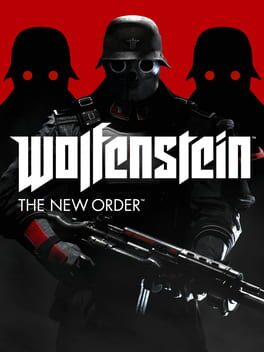
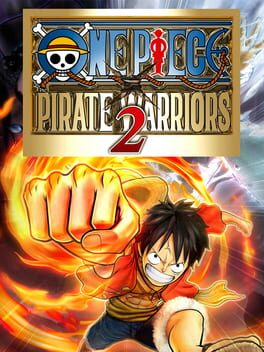
 The english release of the game is notorious for a variety of mistranslations and errors, ranging from names of characters being changed, to lines being switched with other characters.
The english release of the game is notorious for a variety of mistranslations and errors, ranging from names of characters being changed, to lines being switched with other characters.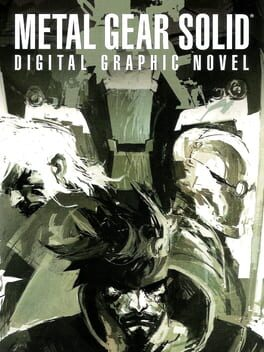

 The Japanese and European Wii versions of the game includes characters that were not included in the PlayStation 2 version of the game. These include Appule, Cyborg Tao, Demon King Piccolo, Frieza Soldier and Pilaf Machine.
The Japanese and European Wii versions of the game includes characters that were not included in the PlayStation 2 version of the game. These include Appule, Cyborg Tao, Demon King Piccolo, Frieza Soldier and Pilaf Machine.

 While Ristar looks cheerful in the Japanese version, Ristar looks angry in the international version. This concept is similarly used in the Kirby series' game box art.
While Ristar looks cheerful in the Japanese version, Ristar looks angry in the international version. This concept is similarly used in the Kirby series' game box art.

 Like the original Ice Climber, Topis were changed from seals to a yetis due to the controversy of seal clubbing. Oddly enough, the English trophy description is exactly the same as in the Japanese.
Like the original Ice Climber, Topis were changed from seals to a yetis due to the controversy of seal clubbing. Oddly enough, the English trophy description is exactly the same as in the Japanese.

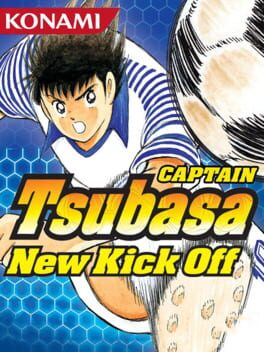
 Up to 2010, a total of 15 different Captain Tsubasa games had been released in Japan. The first to officially be localized to the Western market was the European release of Captain Tsubasa: New Kick Off for the Nintendo DS, which was released in 2010 to celebrate the 30th Anniversary of the Captain Tsubasa series.
Up to 2010, a total of 15 different Captain Tsubasa games had been released in Japan. The first to officially be localized to the Western market was the European release of Captain Tsubasa: New Kick Off for the Nintendo DS, which was released in 2010 to celebrate the 30th Anniversary of the Captain Tsubasa series.
 In all versions of the game there is a secret passage in Cafe HOWDY!/Pub Lali-Ho in the Dwarven Castle of the Underworld that leads to a place called the "Developer's Room". In it are recolored sprites that are meant to be the developers of the game. In the DS release, it has the developers of the DS remake instead. This area was cut in "Final Fantasy 4 Easy-Type" and "Final Fantasy 2 (US)" because it's possible to find a pornographic magazine in the room, called Lustful Lali-Ho.
In all versions of the game there is a secret passage in Cafe HOWDY!/Pub Lali-Ho in the Dwarven Castle of the Underworld that leads to a place called the "Developer's Room". In it are recolored sprites that are meant to be the developers of the game. In the DS release, it has the developers of the DS remake instead. This area was cut in "Final Fantasy 4 Easy-Type" and "Final Fantasy 2 (US)" because it's possible to find a pornographic magazine in the room, called Lustful Lali-Ho.

 A remake of the game titled Kirby's Super Star Stacker was released for the Super Famicom in 1998 in Japan. It was intended for international release, but due to the end of the SNES's lifespan in North America and Europe, it wasn't localized. The game would eventually see a North American and European release through Nintendo Switch Online in 2023.
A remake of the game titled Kirby's Super Star Stacker was released for the Super Famicom in 1998 in Japan. It was intended for international release, but due to the end of the SNES's lifespan in North America and Europe, it wasn't localized. The game would eventually see a North American and European release through Nintendo Switch Online in 2023.
